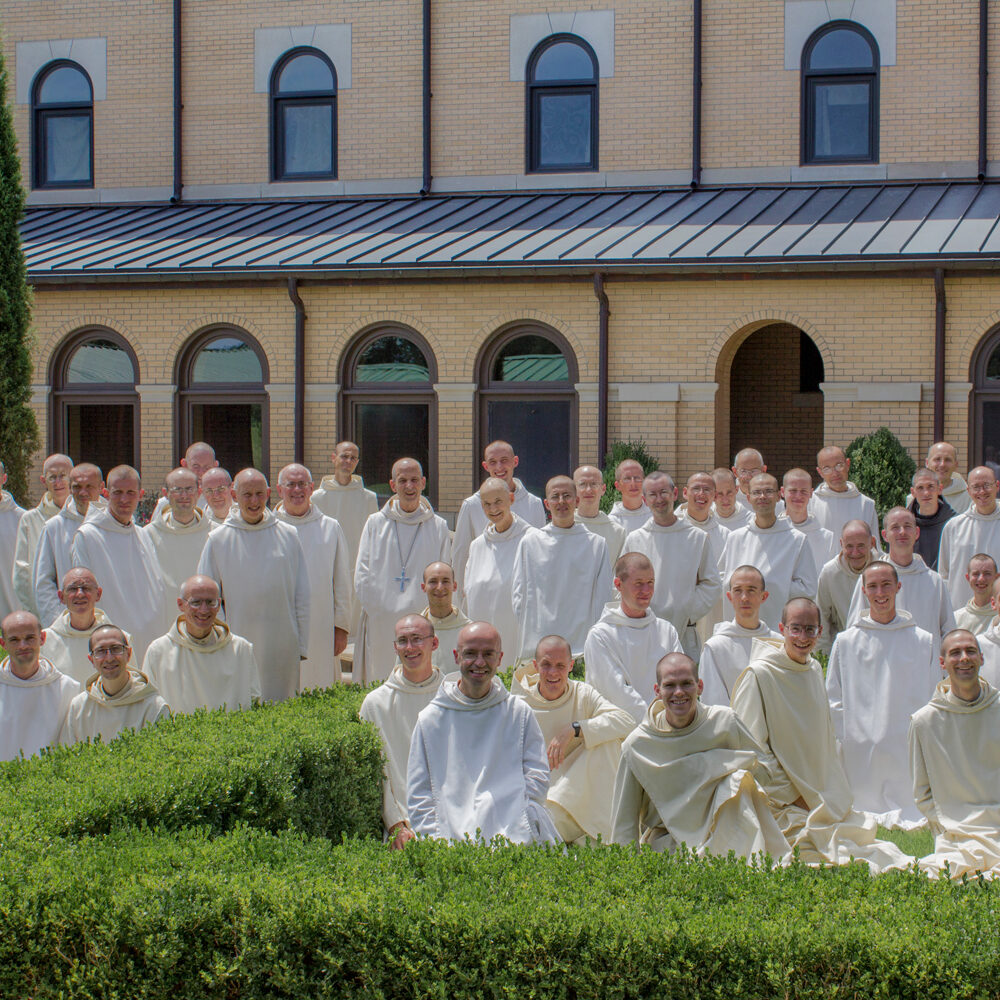And when [the Lamb] had opened the fifth seal, I saw under the altar the souls of them that were slain for the word of God, and for the testimony which they held. And they cried with a loud voice, saying: How long, O Lord (holy and true) dost thou not judge and revenge our blood on them that dwell on the earth? (Apoc. 6:9-10)
Dear Brothers and Sisters in Christ,
My very dear sons,
In the year 609 Saint Pope Boniface IV had twenty-eight cartloads of holy relics of the martyrs removed from the catacombs and transported to the temple formerly dedicated to all the pagan gods (the demons: and for this it was called the “Pantheon”), which was now to become a church dedicated to Saint Mary and the martyrs. These relics were placed in a porphyry basin beneath the high altar, where they rest to this day. When reading about this dedication of the Pantheon as a Christian temple and about the relics that were placed under the altar, it is hard not to think of this passage of the Book of the Apocalypse:
And when he had opened the fifth seal, I saw under the altar the souls of them that were slain for the word of God, and for the testimony which they held. And they cried with a loud voice, saying: How long, O Lord (holy and true) dost thou not judge and revenge our blood on them that dwell on the earth? (Ibid.)
In the vision of the Apocalypse it is the souls of the martyrs that speak from under the altar; in Rome it is their earthly remains, the bodies that lie there. But the voice is one.
No doubt the martyrs in our day continue to cry out in a loud voice that God can hear, protesting the abominable sacrileges that have multiplied in recent times in Europe, in America, and in many places. Just a few days ago was revealed the horrible deed of a Catholic priest in Louisiana. The Archbishop of New Orleans had to reconsecrate the altar of a church where a diabolical crime had occurred. Elsewhere, referring to the number of 61 million babies killed in abortion in the United States since 1973, Bishop David L. Ricken of Green Bay recently said, “Their blood cries out for justice.”
It would be wrong, however, not to contemplate the whole picture, the Catholic picture of the situation. Following the text of the Apocalypse cited above there comes this reassurance:
And white robes were given to every one of them one; and it was said to them, that they should rest for a little time, till their fellow servants, and their brethren, who are to be slain, even as they, should be filled up. (Ibid. v. 11)
On earth too, after the time of persecution will comes the era of peace, at least for a time, until the final and perfect peace of God’s eternal realm. Following so many hardships endured by the faithful during our earthly pilgrimage, from time to time, the joy of victory breaks out irresistibly. The native soil of true Catholics lies amid heavenly landscapes; our natural environment (despite it all) is joy and light. We American Catholics are no doubt living through a dark time: the mood is one of uneasiness and a certain anxiety. And it is the perfect moment to show the stuff we are made of, to wear our armor of light, to walk as children of the Roman martyrs and of all the Saints until peace comes again.
But could all of this be merely a matter of wishful thinking, of pleasant dreams, of a certain poetry of the Faith? What of the theological dimension of our Catholic joy? It is built, in fact, upon the firm theological footing of the virtue of hope. “But sanctify the Lord Christ in your hearts, being ready always to satisfy everyone that asketh you a reason of that hope that is within you,” exclaims Saint Peter (I Petr. 3:15). Saint Thomas Aquinas helps us better understand this great virtue, by which we lean on God to obtain God:
[T]he good which we ought to hope for from God properly and chiefly is the infinite good, which is proportionate to the power of our divine helper, since it belongs to an infinite power to lead anyone to an infinite good. Such a good is eternal life, which consists in the enjoyment of God Himself. For we should hope from Him for nothing less than Himself, since His goodness, whereby He imparts good things to His creature, is no less than His Essence. Therefore the proper and principal object of hope is eternal happiness. (Summa Theologiæ, Part. IIa IIae, Quest. 17, art. 2)
So, let us not give up hope in this season of darkness and discontent. Better days will flourish again, and the present affords us the possibility of proving in some small way our fidelity to God and to His Church. Whoever it is that claims the role of Caesar over us for the next few years, we shall, in the final analysis, recognize Christ the King as our Sovereign Lord for time and eternity and the Blessed Virgin Mary as First Lady of our hearts. Amen. Alleluia.




